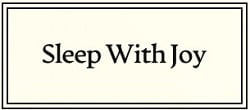My Name Is Dr. Niki Elrod

It is a medical sub specialty dedicated to the comprehensive diagnosis and treatment of sleep disorders . The Sleep Medicine specialist assesses his patients through an interview, medical history and physical examination aimed at looking for symptoms and signs of sleep disorders such as: insomnia, sleep breathing disorders, movement and behavior disorders, alterations in the pattern of wakefulness and sleep, associated and expected changes due to age, as well as the relationship between medical illnesses and the effects of medications on sleep.
Depending on what is required, the sleep medicine doctor may indicate some type of sleep study as part of the diagnosis or treatment. These studies can range from simplified studies such as: actigraphies and respiratory polygraphies that are carried out in the room of the patient admitted to the hospital and in the patient’s home, to much more complex studies such as day or night polysomnography.
A person should see a Sleep Medicine Specialist if they have any or more of the following symptoms:
- Feeling of having a little restful sleep.
- Difficulty falling asleep, staying asleep, or waking up earlier than desired.
- Patients with dependence on drugs to be able to sleep.
- Decrease in the number of hours of sleep or loss of adequate quality of sleep.
- Strange sensations in the legs that bother when night falls and that require continuous movement to relieve symptoms.
- Annoying snoring for you or those who live with you.
- Feeling of suffocation during sleep or waking up with a feeling of suffocation.
- Respiratory pauses during sleep observed by a family member.
- Have a dry mouth when waking up.
- Continual awakenings during the night.
- Drowsiness during the day
- Alterations in behavior during sleep: acting out dreams, hitting, kicking, walking or wandering during sleep.
- Strange movements at night.
- Talking asleep excessively at night.
- Frequent nightmares or increased number of dreams.
- Feeling that something does not allow us to move during awakening.
- Frequent sleep events during the day that cannot be controlled.
- Bruxism or jaw pain on awakening.
- Wetting the bed during sleep.
- Continuous movements of the legs or arms during sleep.
- Sleeps very late or sleeps during the day.
Mail: [email protected]
